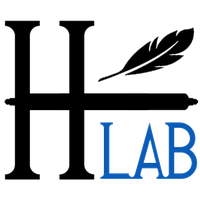
Unibo structure involved: Department of Education Studies "Giovanni Maria Bertin" - EDU
Scientific manager: Beatrice Borghi
Unibo Team: Manuela Ghizzoni, Rosa Smurra, Filippo Galletti
Project Web page: https://historylab.es
Erasmus+ Action type: Cooperation for innovation and the exchange of good practices Strategic partnerships HE - Partnerships for Digital Education Readiness
Project reference: 2020-1-ES01-KA226-HE-095430
Start Date: 1 March 2021
End Date: 28 February 2023
Budget: Total: € 159,296 UNIBO: € 25,532
Coordinator
UNIVERSIDAD DE MURCIA (ES)
Partners
ECOLE DES HAUTES ETUDES EN SCIENCES SOCIALES (FR)
HELSINGIN YLIOPISTO (FI)
UNIVERSITEIT VAN AMSTERDAM (NL)
ALMA MATER STUDIORUM - UNIVERSITÀ DI BOLOGNA (IT)
MALMO UNIVERSITET (SE)
UNIVERSIDADE DO PORTO (PT)
Summary
After the covid-19 pandemic some needs of History Education have been accentuated. First, the need of a methodological change that integrates active learning methods, digital resources and emerging technologies in order to attend the non-presential lessons for the students. Traditionally, history classes in Secondary Education have conformed a space in which the most successful students adopt the forms to read, memorize, think and write as required by the teacher (Nokes, 2017). Opposite to the traditional image of a history class, an alternative model has as purpose that the students are able to interpret and use the information. This model conceives the knowledge as a construction, with interdisciplinary approaches and based on real social problems. Active-learning methods and digital resources play a fundamental role in this change on this globalized and hyper-connected 21st century society. Second, the need of a multicultural approach on Europe’s History, based on inclusion, social and gender equality and away from supremacists dogma. It is necessary for teachers to change their conception of why and for what teach history (Seixas & Morton, 2013). This approach combines civic education, historical consciousness, and controversial social issues (Rüsen, 2012). It is a perspective that promotes citizenship engagement through reasoning and reflection. This need has become more acute with the covid19 pandemic: fighting versus hoaxes and hate speeches through argumentation and critical analysis of sources to avoid fake news and postruth and to develope a learning perception based on evidences. It is also necessary for Secondary Education students to learn the origins of social inequalities, the reproduction of these inequalities, and the consequences of pandemics.
This project is cross-sectoral given that the proposed intervention in Higher Education, addressed to History teachers in initial training at Universities, will ultimately result in a change of the History teaching&learning approach and the role and critical abilities of pupils in Secondary Education. The Project focuses on the development, on the one hand, of the digital skills of active and future History teachers who are trained at official programmes at Universities, and on the other hand, on bringing about a profound methodological and content change in the teaching of History. A change of approach must be made, introducing the techniques and tools of the historian, and promoting the acquisition of procedural content. This support to teachers in the acquisition of skills and in the methodological change attempt to promote citizenship education and reinvent the role of pupils in Secondary Education.
The main objective of this project is to develop a History Lab that integrates digital resources, teaching and learning units, and methodological training blocks in emerging technologies for history teachers. The specific aims are:
- To Create a joint curriculum document for a common framework of cross-cutting contents allowing a multicultural, inclusive and social and gender approach in equality.
- To Create a library of digital resources and 35 teaching and learning units on European history, through active learning methods and emerging technologies from a multicultural, inclusive and social and gender approach in equality.
- To Create four online modules to train history teachers in the use of digital resources and new teaching methodologies. Module 1 will contain training activities on emerging technologies. Module 2 will contain activities on active learning methods. Module 3 will contain activities on planning teaching and learning units. Module 4 will contain activities on learning assessment.
- To Design and validate the effectiveness of HistoryLab e-Toolkit. Through an educational intervention using the e-Toolkit among history teachers in initial training and practicing
The four intellectual outputs proposed will improve the skills on active-learning methods and the use of digital resources for History teachers.
Another result expected is to create stronger ties between European universities dedicated to teacher training from a transnational perspective. After the elaboration of the e-Toolkit, we intend that the HistoryLab can serve for the sustainability of the project gathering experiences and ideas from other territorial realities, expanding the participating organizations. Also we will create collaboration networks between history researchers, universities dedicated to the training of history teachers, regional educational entities, school management teams, and associations of Secondary Education teachers. The Project will enable to establish collaborating frameworks for the transfer of academic and educational knowledge built in Higher Education to Secondary Education and European and national educational authorities.
